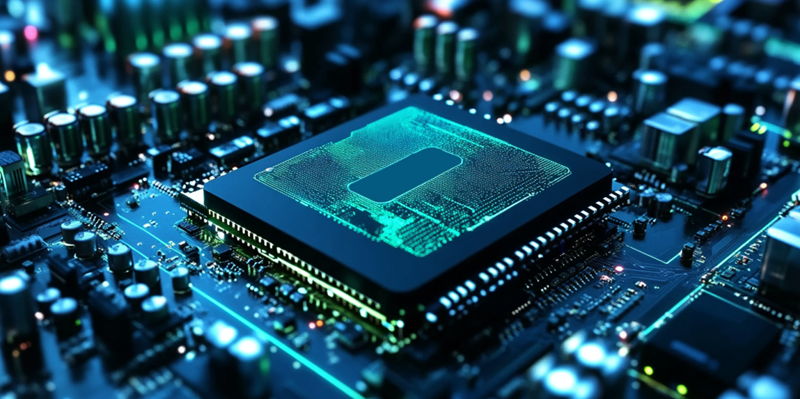The escalating tensions between chipmakers Qualcomm and Arm have reached a critical juncture, with a legal dispute stemming from Qualcomm’s 2021 acquisition of Nuvia, a company specializing in designing custom Arm-compatible chips for servers. This acquisition has ignited a fierce battle over licensing rights, rooted in the agreements initially granted to Nuvia. Before the acquisition, Nuvia held a Technology License Agreement (TLA) and an Architecture License Agreement (ALA) from Arm, which allowed modifications to Arm reference cores and the design of custom cores, respectively. However, Arm contends that these licenses were non-transferable and should not have carried over as part of Qualcomm’s acquisition of Nuvia.
Consequently, Arm canceled Nuvia’s license and has maintained the stance that Qualcomm must renegotiate the licensing terms for the acquired technology. Qualcomm, on the other hand, argues that its pre-existing ALA encompasses its subsidiaries, including Nuvia, effectively covering the technology in question. This disagreement has led to ongoing litigation that commenced in 2022 as both companies seek to assert their positions legally. Arm’s demands are severe, insisting that Qualcomm cease using Nuvia’s designs and further calling for the destruction of any pre-acquisition Nuvia designs. The intensity of this dispute escalated when Arm issued a 60-day notice to Qualcomm regarding the potential revocation of its licenses, a move that could jeopardize Qualcomm’s lucrative Snapdragon chip production line.
The Stakes and Industry Implications
Qualcomm’s Snapdragon chips are integral to its operations, contributing substantially to the company’s $39 billion annual revenue. Specifically, Qualcomm has integrated Nuvia’s technology into the Oryon CPU core, a significant advancement for the Snapdragon X Elite and Snapdragon 8 Elite chips. These chips, particularly the Snapdragon X Elite, are groundbreaking, representing the first Arm-based laptop chip capable of running a Windows PC efficiently, comparable to traditional x86 systems. Extending the Oryon cores to mobile devices, the Snapdragon 8 Elite promises high performance, enhancing Qualcomm’s competitive edge in the mobile technology market.
Arm’s aggressive stance seems partially strategic, aiming to compel Qualcomm to the negotiating table. The tech industry, significantly reliant on Qualcomm’s chip technology, demonstrates the potential widespread disruption such a licensing battle could trigger. Major PC manufacturers like HP, Dell, and Microsoft have already made commitments grounded in Qualcomm’s ongoing and future chip production. Hence, an unfavorable legal outcome for Qualcomm could reverberate through the supply chains of these major players, illustrating how interconnected and dependent the tech ecosystem is on such semiconductor technologies.
Legal and Operational Challenges
As the December 16 legal showdown looms, the increasing litigation pressure leaves both companies navigating significant operational challenges and market uncertainties. The semiconductor industry is particularly vulnerable to licensing disputes given the complexities and dependencies in the technology and intellectual property landscapes. Should Arm successfully revoke Qualcomm’s licenses, it could significantly hinder Qualcomm’s ability to continue producing and advancing its critical chip lines, stalling innovation and potentially leading to market shortages.
The potential disruption extends beyond Qualcomm’s immediate sphere, affecting partners and end-users dependent on its chip technology. In the fast-paced tech sector, any operational hiccup resulting from such legal entanglements can have cascading effects, influencing product release schedules, market dynamics, and competitive positioning. The frostiness between Qualcomm and Arm serves as a stark reminder of the delicate balance within which technology companies operate, where licensing agreements are foundational to progress and stability.
Broader Industry Reflections
The escalating conflict between chipmakers Qualcomm and Arm has reached a crucial stage due to a legal dispute linked to Qualcomm’s 2021 purchase of Nuvia. Nuvia focuses on creating custom Arm-compatible chips for servers, and this acquisition has sparked a heated battle over licensing rights that were originally granted to Nuvia. Prior to the acquisition, Nuvia held a Technology License Agreement (TLA) and an Architecture License Agreement (ALA) from Arm, allowing modifications to Arm reference cores and the design of custom cores, respectively. Arm argues that these licenses were non-transferable and should not have been included in Qualcomm’s acquisition.
As a result, Arm canceled Nuvia’s licenses and insists that Qualcomm must renegotiate terms for using the acquired technology. Qualcomm, however, claims its pre-existing ALA covers its subsidiaries, including Nuvia, thus covering the technology in question. This disagreement has led to ongoing litigation that began in 2022. Arm’s demands are stringent, requiring Qualcomm to stop using Nuvia’s designs and destroy any pre-acquisition designs. The tension peaked when Arm issued a 60-day notice to Qualcomm, threatening to revoke its licenses, potentially risking Qualcomm’s profitable Snapdragon chip line.

